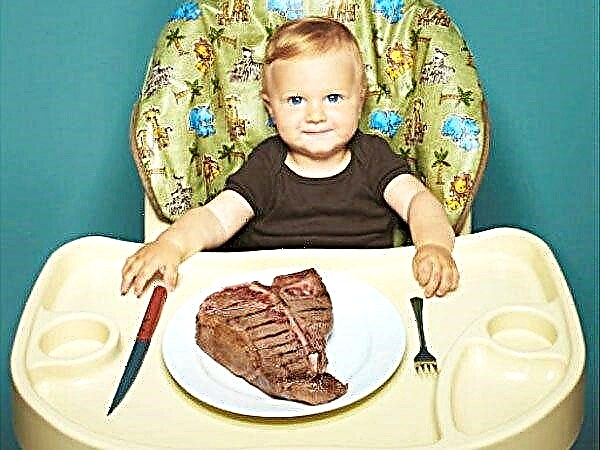A baby is a baby who mainly eats mother's milk or formula. This is the name for children under one year old. Are there any allergies to these basics of the infant diet?

Baby
Breast milk allergy
Surprisingly, it is a fact that a newborn's only food can provoke the development of allergies in him. There is also such a definition as cow protein intolerance. These two concepts are different in meaning, but very similar in symptoms, therefore they are often confused.
Allergy is a reaction of the body. Simply put, he identifies cow protein in an adapted formula or breast milk (which gets there from the mother's diet) as a hostile substance and triggers an immune response.
An allergic reaction may be the result of consuming too much of the allergen, therefore, it is more common in bottle-fed babies.
Another thing is intolerance. The immune system accepts milk proteins, but the body lacks the digesting enzyme. Moreover, intolerance and allergies are very similar in symptoms.
Important! If the mother has a suspicion of the existence of an intolerance to cow's milk protein in infants, allergies, self-medication is prohibited. There is only one way out - see a doctor.
How to identify milk allergy
So, allergy is the refusal of the immune system to recognize the protein of cows. There is no clear indication to indicate this problem. The clinical picture is different in each particular case. Allergy to cow's milk protein in infants may have the following symptoms:
- Diseases of the gastrointestinal tract (ranging from diarrhea and regurgitation and ending with growth retardation, enetropathy, etc.);
- Skin problems (pimples appear on the face, redness of the skin appears, in case of extensive allergies, atopic dermatitis begins);

Skin rashes with an allergy to cow protein
- Diseases of the respiratory system (from inflammation of the nasopharynx and to laryngeal edema);
- Vision problems (conjunctivitis may begin);
- General irritability;
- In especially severe cases, the case may end in anaphylactic shock or Quincke's edema.
Attention! Allergies are immediate and delayed. If a child drank the milk mixture once and feels great, it is not a fact that his immunity has taken a controversial product. If a young child is allergic to milk proteins, the body's active response may begin later - up to 10 days after consumption. That is why all new products are introduced into the children's diet little by little per week.
Diagnosis of cow protein allergy
No specialist can diagnose this problem by eye. The pediatrician is obliged to collect an anamnesis of the disease, including probable genetic tendencies, send the mother and baby for an examination to an allergist, gastroenterologist and prescribe a number of special tests-analyzes. Among them:
- Prik test (when a suspected allergen in a microdose is injected under the skin);

This is how the prick test is done
- Patch test (cow protein is applied to the skin from above);
- Test diet (milk in all manifestations is completely excluded from the diet of the child and his nursing mother; the artificial baby is transferred to a specially developed therapeutic mixture).
Important! In case of allergy to milk proteins, only a doctor replaces food for a child on formula.
Mom's milk allergy
If the baby is allergic to mother's milk (although this is rare, it happens), first of all, one should remember that it is harmless in itself. Mom's nutrition affects him, and allergens - the same ill-fated cow's milk proteins, or BCM, get to the baby through it. Mom eats dairy and fermented milk products, beef, believing that this is good for herself and for the milk produced, but everything turns out to be the opposite.
Is mom's milk allergy treated?
You can treat the disease. Allergy to breast milk, or rather cow protein in it, is eliminated by introducing a dietary regimen. Neither the baby nor the mother herself should consume a single gram of a product that includes the above allergen. However, you do not need to be afraid of a diet for a long life - most often children outgrow such an allergic reaction of immunity, it goes away over time.
Attention! If a mother feeds the baby herself, and he is diagnosed with an allergy to CMP, she needs to carefully study the composition of all products purchased in the store. Sometimes traces of milk are found where it is difficult to assume their presence.

Mom feeds the baby
Allergy to milk in artificial
Allergy to milk proteins in an artificial child is much more difficult to defeat. Mom no longer breastfeeds for some reason, which means that the baby can only eat adapted food, mostly based on cow's milk. The more allergen there is, the higher the likelihood of developing an allergy, therefore, it is more common in such babies. Since formula-fed children still need formula, doctors and baby food manufacturers have found another way out.
First of all, you need to visit a doctor, because only he will correctly determine the presence of a problem and distinguish allergies from intolerances. Then you will have to switch to a mixture replaced on his recommendation. They are like this:
- Hypoallergenic. BKM is slightly processed in it, for mild forms of allergy it will be enough;
- Hydrolysis. For her, they take casein hydrolyzate - a split protein. This mixture is suitable for moderate to severe allergies;
- Amino acid. It is used for severe and extensive allergies, even when the child does not eat hydrolysis (this happens, because it tastes very bitter).
In addition, the allergist will prescribe medications to the baby that will help the body cope with the reaction, as well as drugs that will tell the immune system how to remove histamine, not accumulate it. This is done so that the baby eventually outgrows the allergy.

Kid eating mixture
Attention! Allergy to dairy products in a child requires a complete rejection of them in any form. The mixture will be prescribed by a doctor, everything else (especially for cottage cheese and cheese) must be removed from the diet altogether. Violation of the dietary regime leads to a deterioration in the baby's condition and to the fact that with growing up the problem will persist.
Cow protein intolerance
With intolerance to cow proteins in infants, the prognosis is much more favorable. It is often confused with allergies, but the mechanism of these two problems is different. Intolerance is a lack of a degrading enzyme, not an immune response.
Lactase is the enzyme that helps digest milk. It so happens that it is not enough to break down the main carbohydrate in breast milk - lactose.
Reasons for the appearance of intolerance
Lactase begins to be produced by the body of the fetus even before birth, at about 11 weeks of intrauterine development, from 24 weeks its production increases. By 37-40 weeks, the concentration of lactase reaches the required maximum. Further, there are three possible reasons why enzyme deficiency is manifested:
- Congenital. This means that the baby's body produces lactase only while he feeds on his mother's milk. When a child moves to a common table, the need for the enzyme falls, and an adult has about 8% of the norm for a newborn.
- Secondary. Inflammation of the intestinal mucosa reduces enzyme production. The cause of the inflammatory process can be varied: from infection to atrophy.
- Transient. This happens in babies born prematurely. Their gastrointestinal tract did not have time to mature to full-term norm, and the level of lactase production did not reach the required levels.
How does intolerance manifest?
Allergy symptoms are very similar to milk protein intolerance in infants, which is the cause of the confusion. First of all, the problem of a lack of a cleaving enzyme affects the gastrointestinal tract, especially during the period when the frequency and volumes of feedings increase (i.e., from about 3 weeks of age).
- The baby is tormented by regurgitation, colic, increased gas production, diarrhea. Because of this, failure at such an early date is confused with ordinary infant colic - they have the same clinical picture.

Cow protein intolerance is symptomatic of colic
- The stool becomes green, foaming, and a sour smell.
- Regurgitation and indigestion can make your child's body dehydrated.
A doctor should diagnose lactase deficiency. If mom and dad have any suspicious symptoms, they should see a pediatrician. He, together with a gastroenterologist and with the help of tests (general - blood, feces, additional - feces for carbohydrates, for bacterial culture) recognizes the problem. The treatment will consist in the selection of means to improve the fermentation (for example, "Lactazar"), in the case of artificial people - also in the selection of a more suitable mixture.
Allergy to cow protein in formula and breast milk, lactase deficiency are problems that are especially unpleasant for babies. With close supervision of parents, with timely visits to a pediatrician, with proper adherence to medical recommendations, they are not a life sentence.



